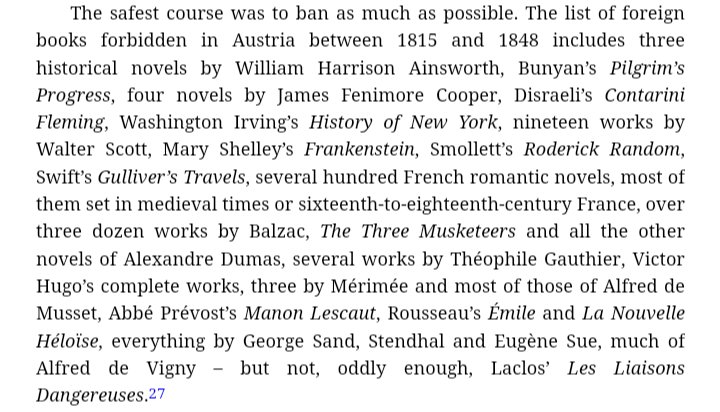A thread with excerpts from Phantom Terror: Political Paranoia and the Creation of the Modern State, 1789-1848 by Alex Zamoyski 
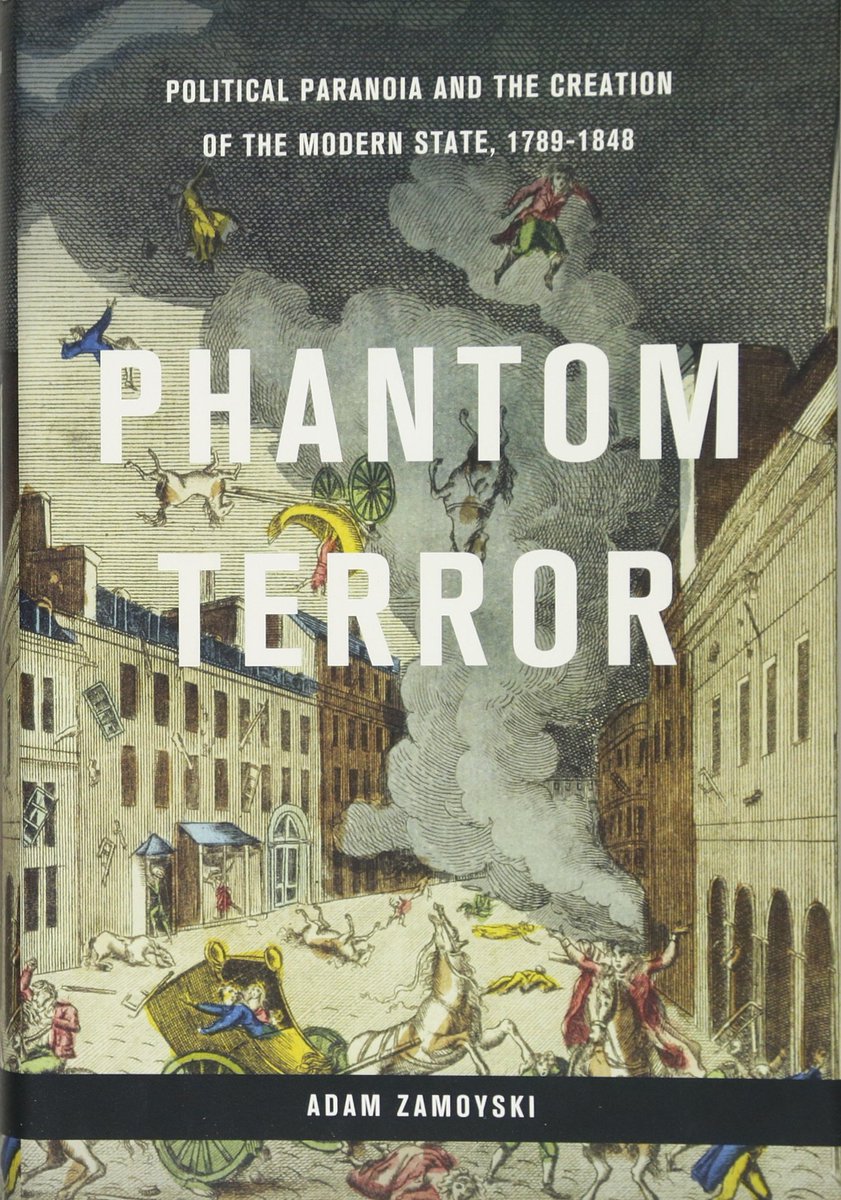
Tsar Alexander I had long dreamed of a European collective security agreement, and over time began to see Napoleon as a force of divine evil. His Holy Alliance, better translated as Holy Covenant, was seen as a joke by other European statesmen. They signed on anyway. 

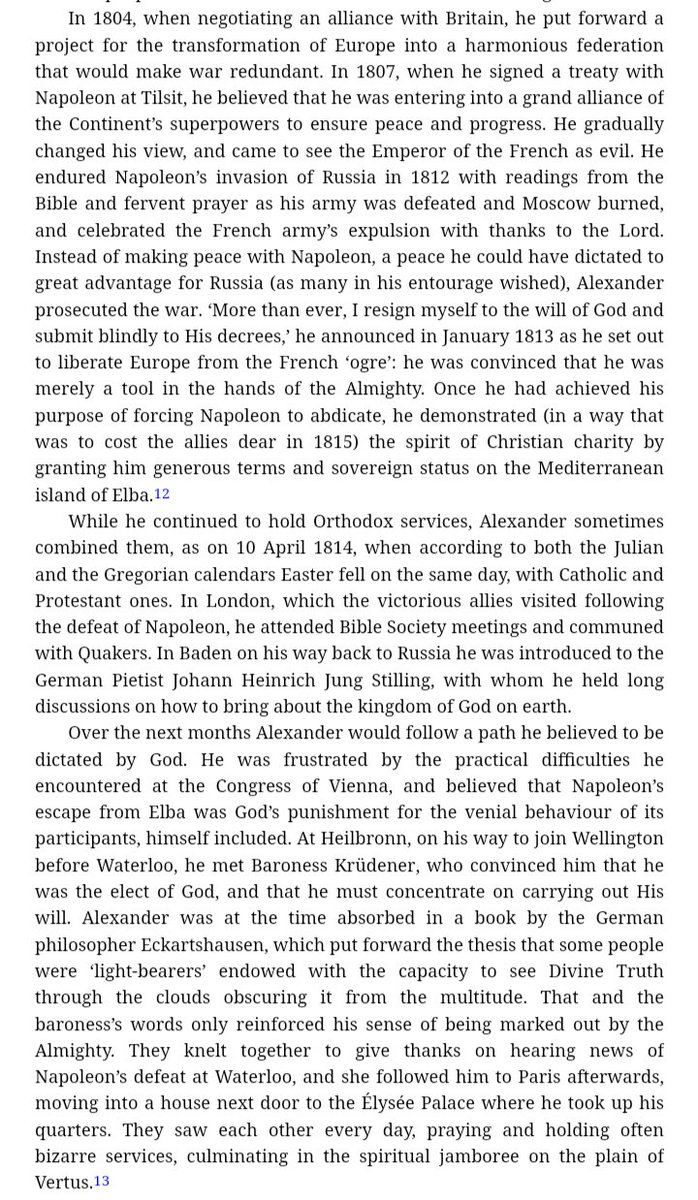
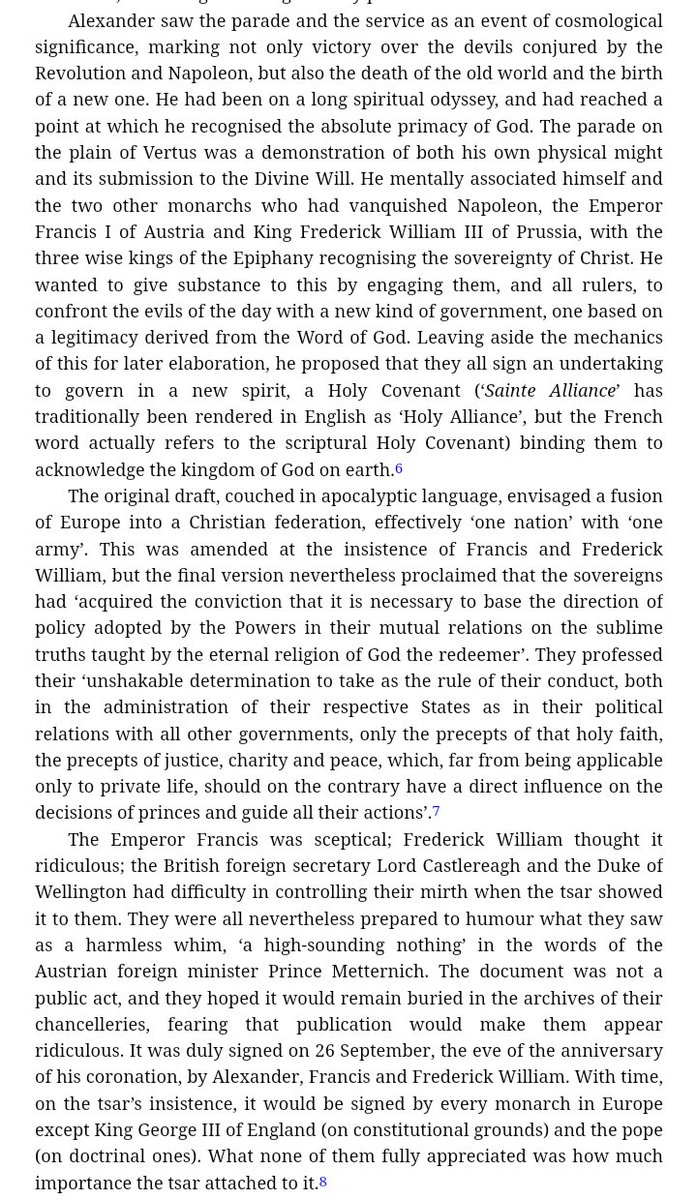
The Storming of the Bastille set off a wave of "emotions of an essentially spiritual nature" in support. Its opponents also saw it in quasi religious terms, with some suggesting it was Satanic or revenge for the taking of Jerusalem in the 1st Crusade. 

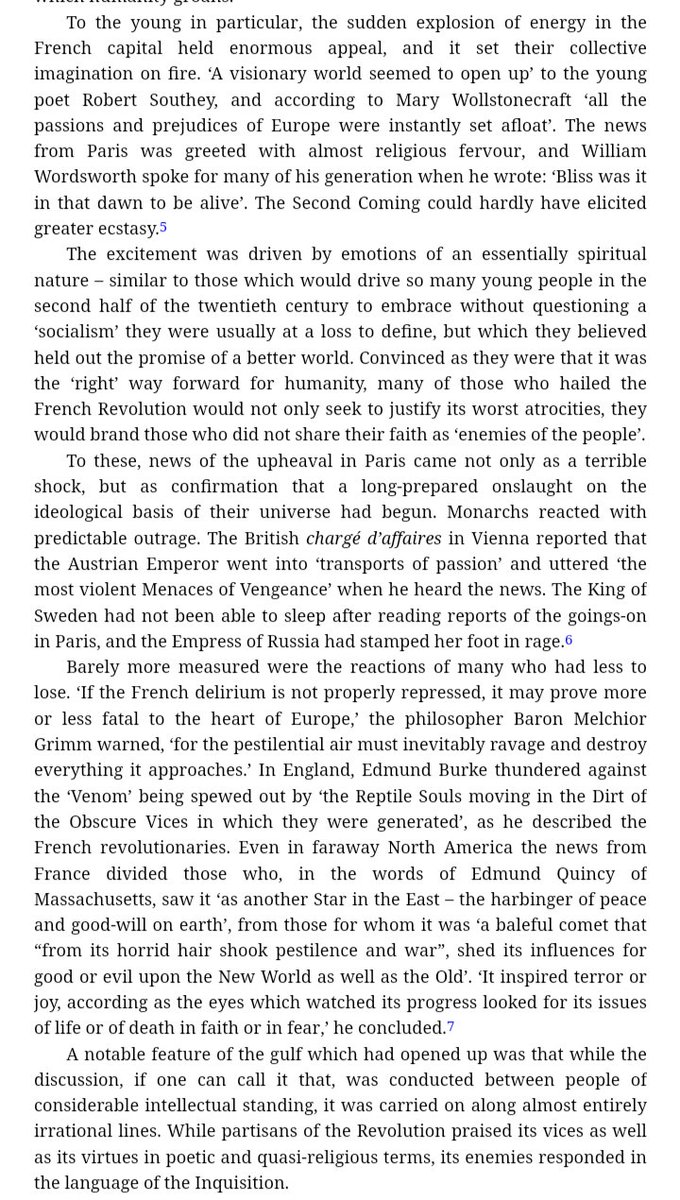
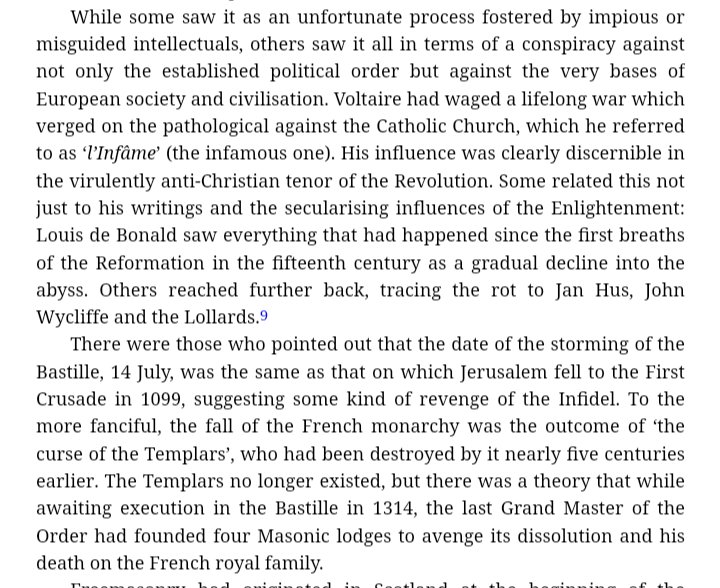
The 18thC French police were responsible for far more than their modern counterparts -- everything from regulating brothels to operating pawnshops. Although famous for surveillance, it was the new Republican government that first used them for widespread political repression. 


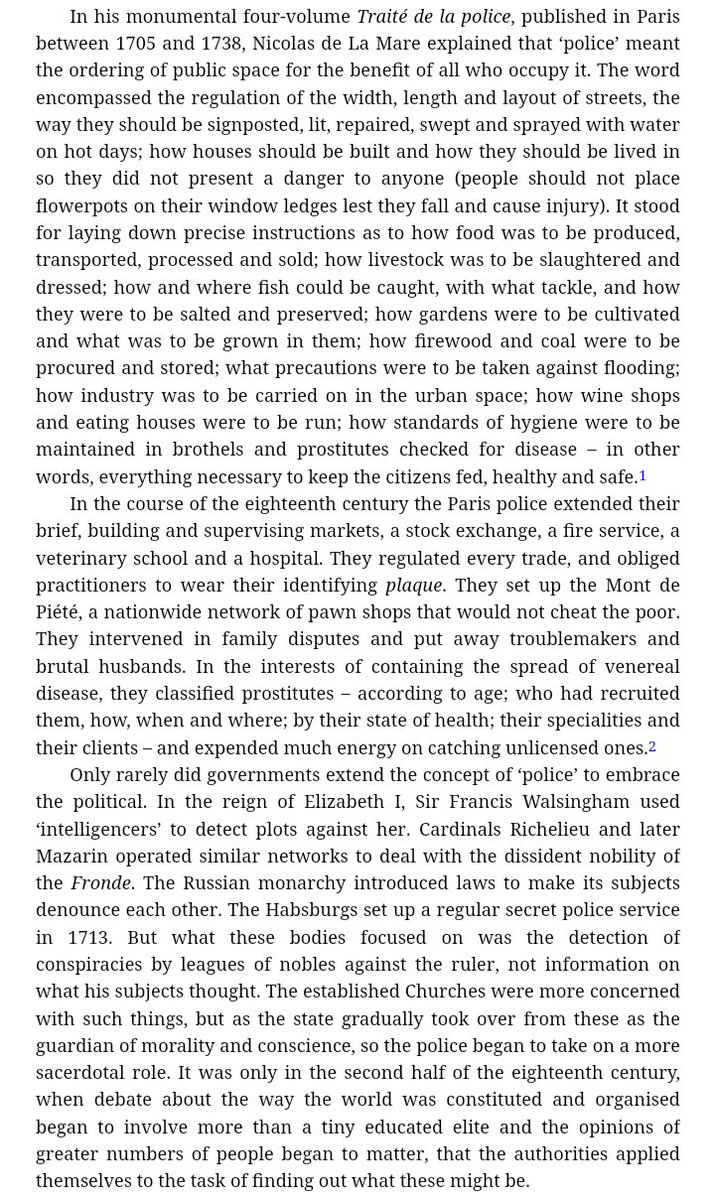
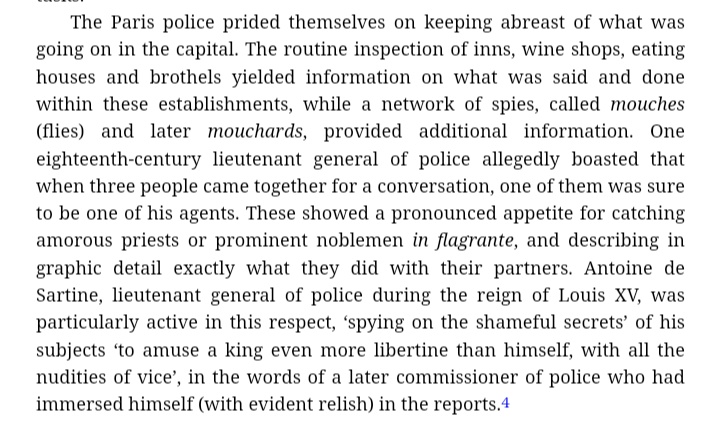
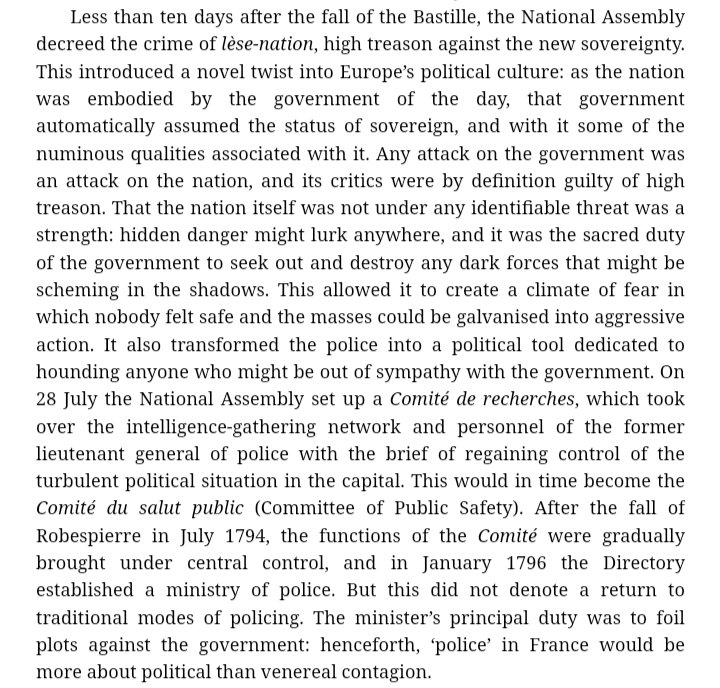
A former French Jesuit wrote a bestseller in which he argued that the French Revolution, and all other political upheaval in Europe, was the result of the Freemasons, whose ultimate aim was the destruction of all hierarchy and order. 

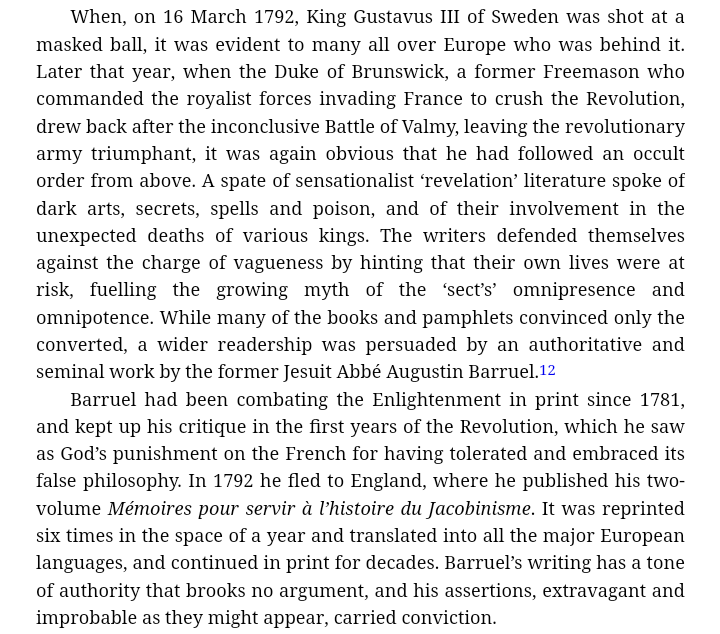
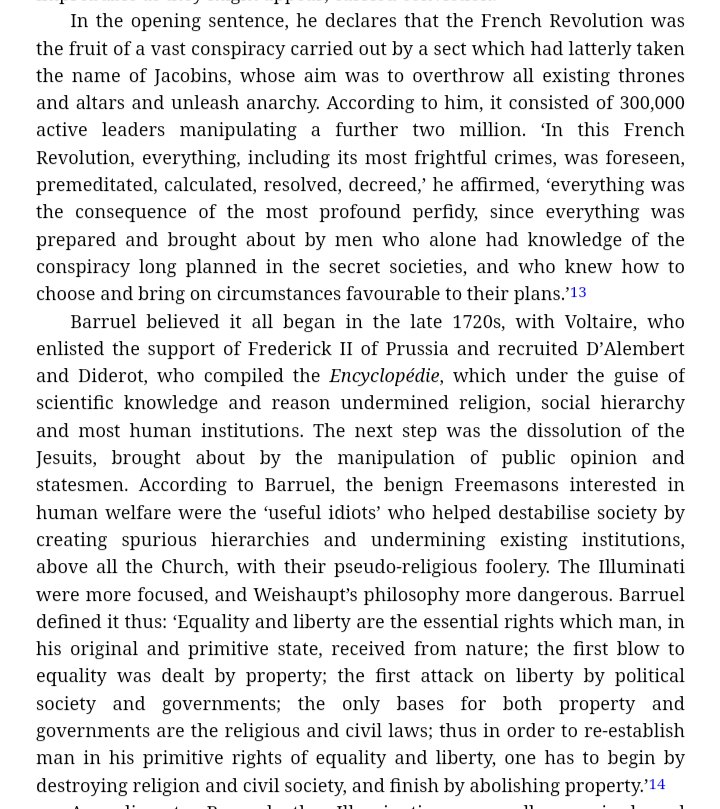
Austria, paranoid about French and Masonic conspiracies, established a widespread system of surveillance and censorship. The police rewrote plays and operas, infiltrated embassies disguised as servants, and had Beethoven under watch as a potential revolutionary. 



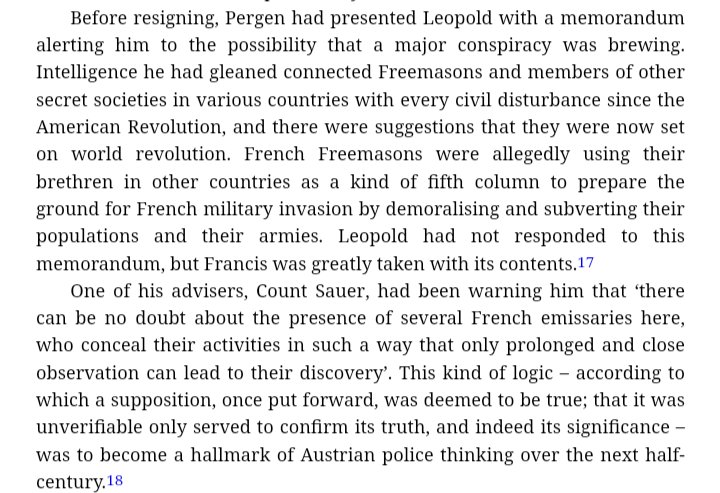
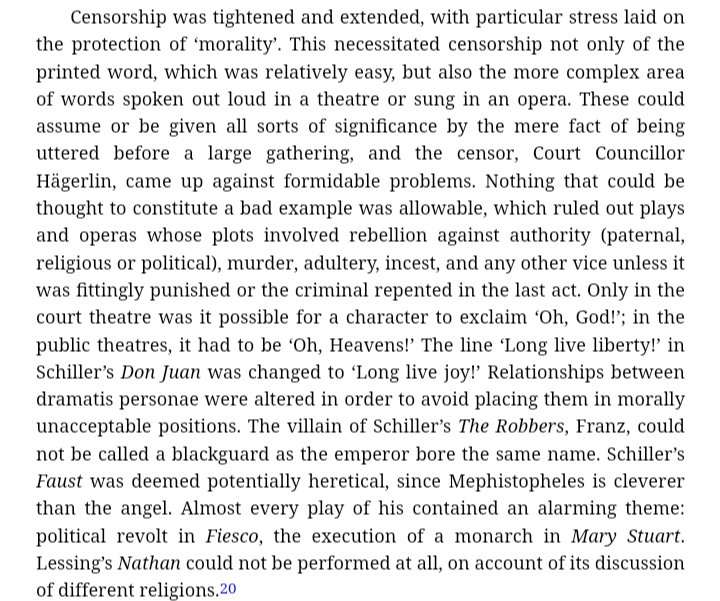
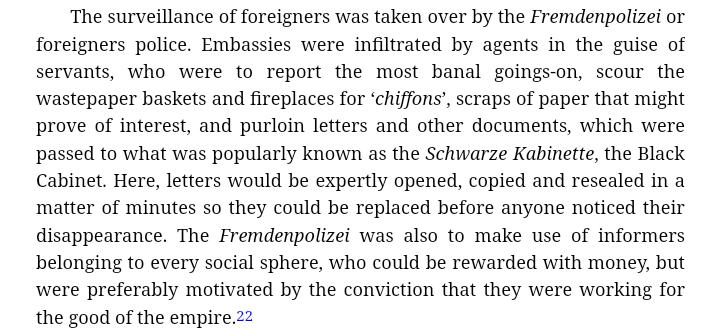
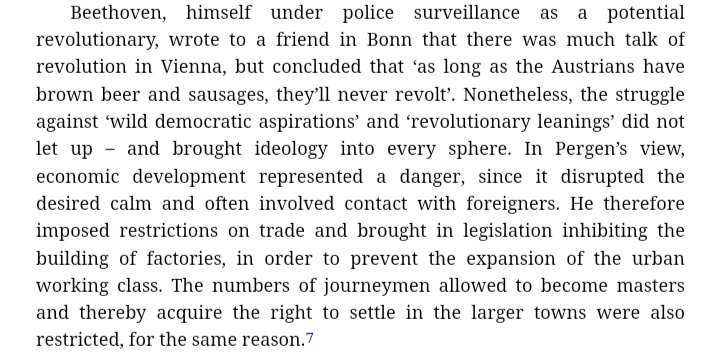
Even Britain, despite its reputation for liberal government, implemented what some called a "reign of terror" as anti-war protestors were given years of hard labor. It banned all trade unions, but the Masons got a law changed that would have eliminated them as well. 


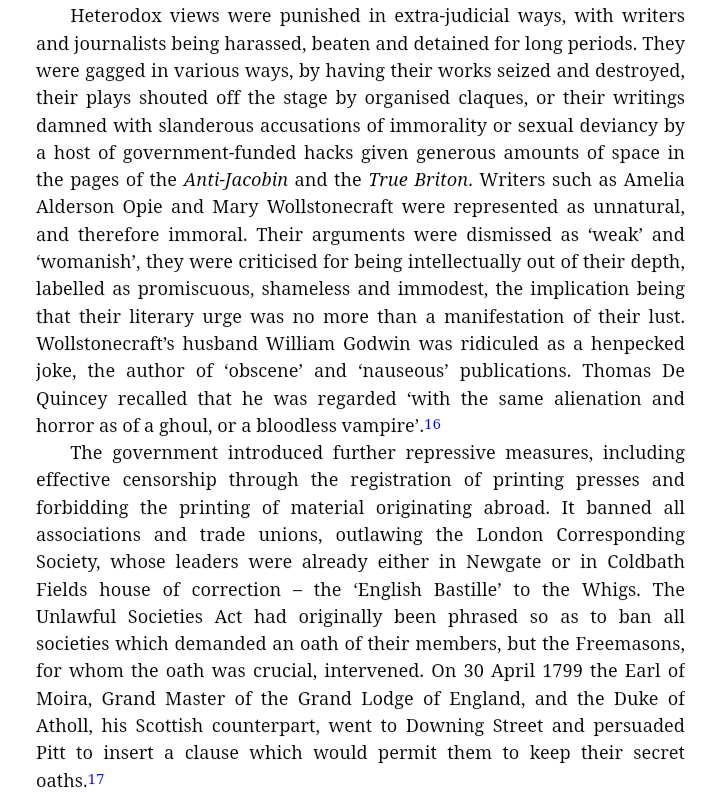
Fear of revolutionary contagion spread to the US as well, especially among the Federalist party, leading to the passing of the Alien and Sedition acts. One writer connected the Whiskey Rebellion to the Illuminati, the United Irishmen, and French agents. 
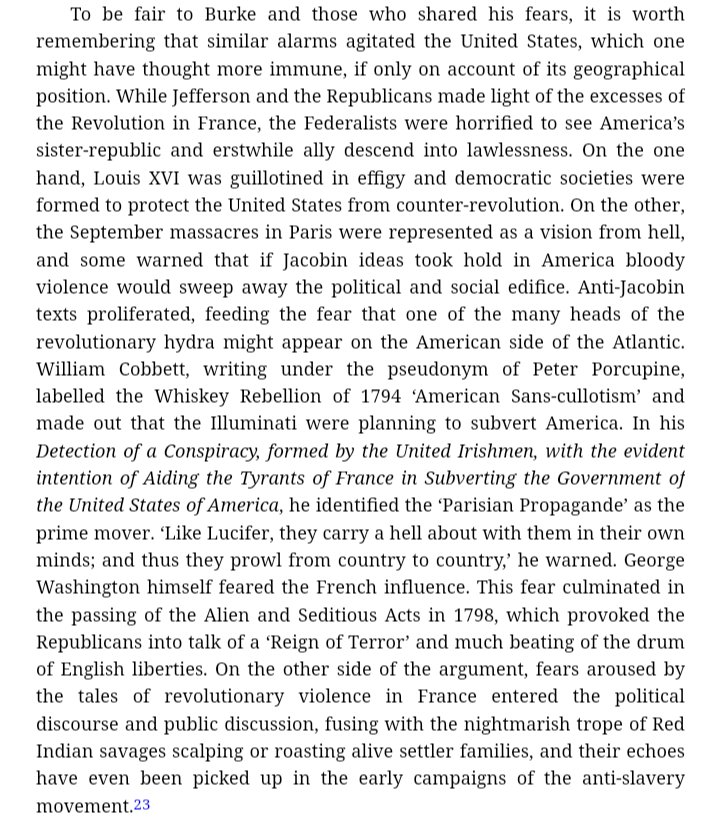
Popular anti-Jacobin novels in Britain portrayed revolution in sexual terms, with demogouges and French agents with names like "Judas McSerpent" scheming to seduce innocent English girls. 
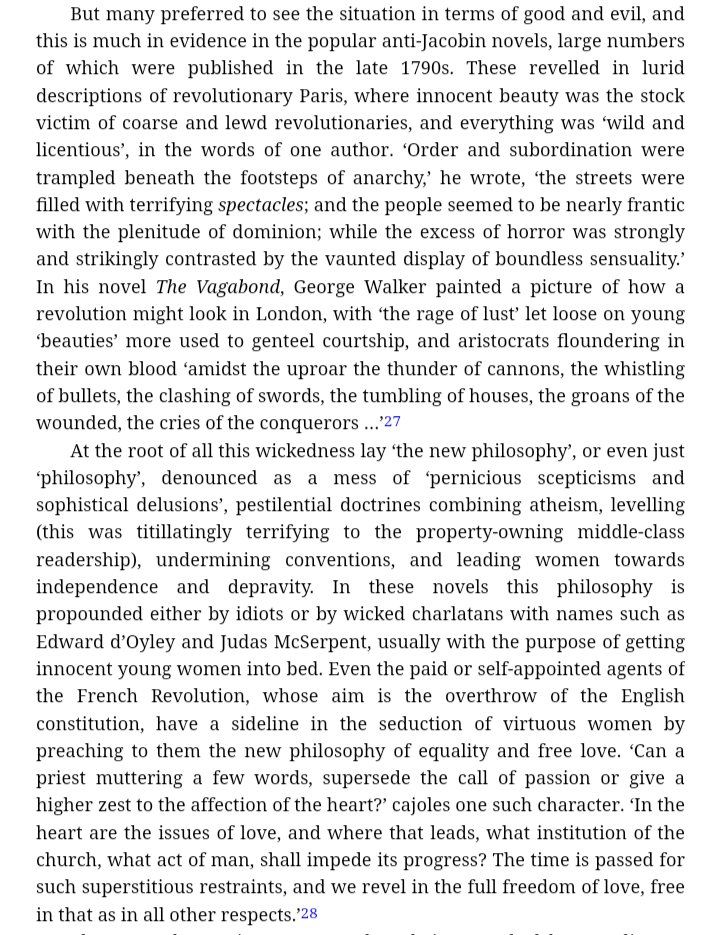
Like more modern secret police, the agents of the French Revolutionary government were incentivized to make up and embellish as many plots as possible, as to find nothing was seen as "clear proof of utter incompetence or of deliberate covering-up." 
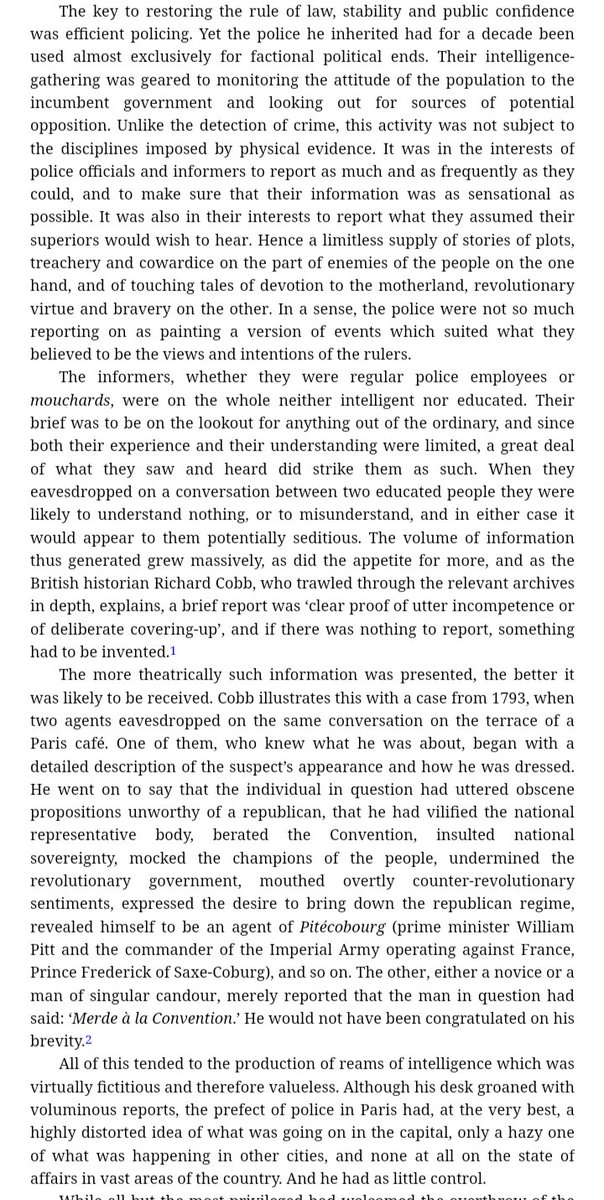
Napoleon restored order in part by professionalizing state security. The target of 30 assassination attempts, he typically avoided harsh punishments for the perpetrators. His minister of police justified surveillance on the grounds that it was more humane than general repression. 

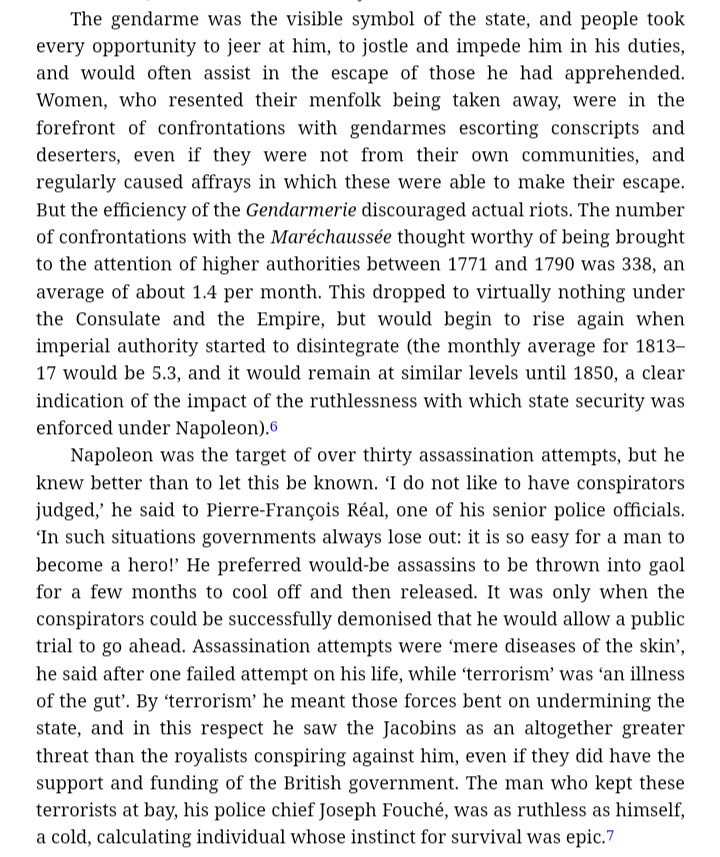
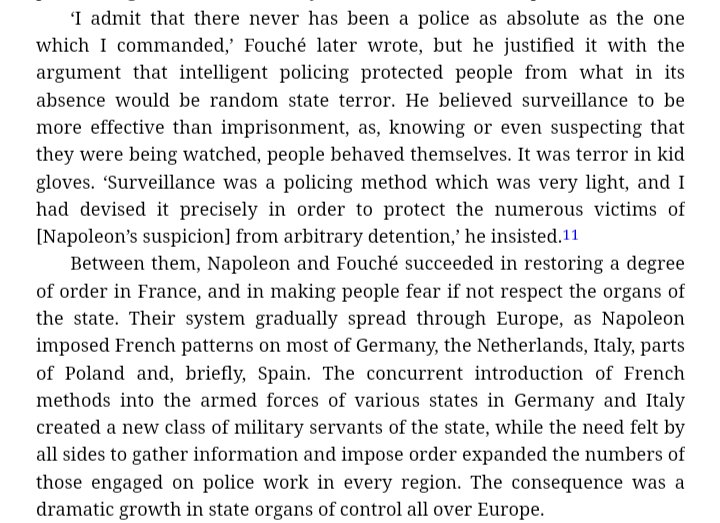
The British government believed there was a nationwide Luddite conspiracy to overthrow the government based on vague reports from informers. They sent out thousands of regular troops in response. 
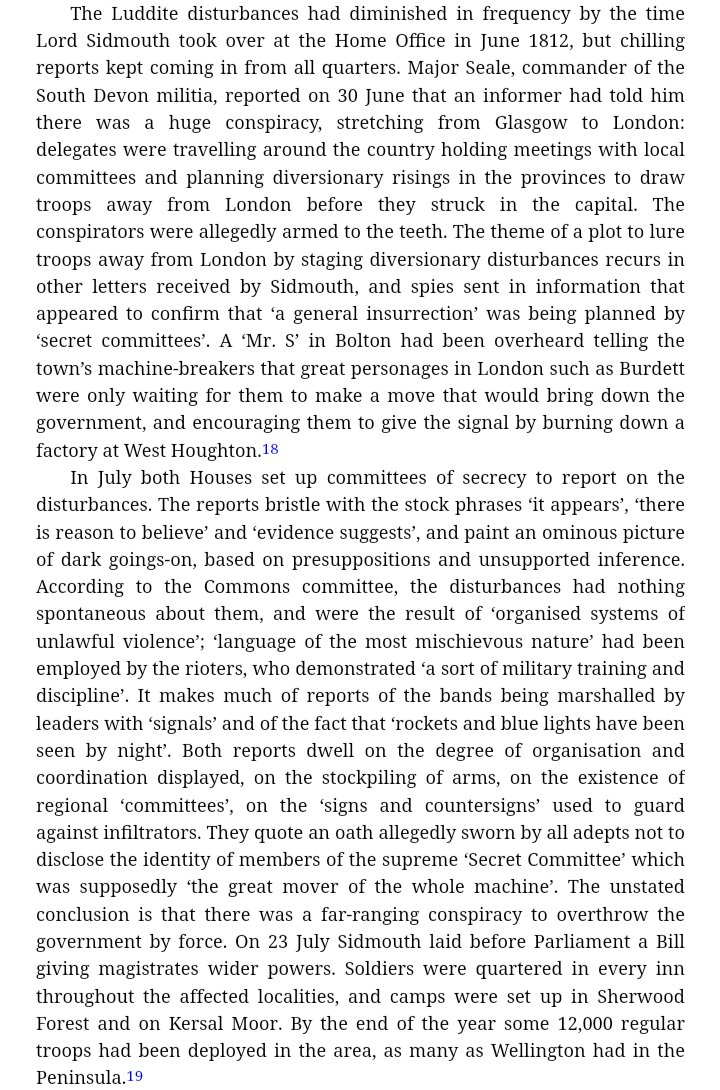
The Napoleonic Wars systematically uprooted traditional European society, pulling young men out of their communities, destroying established churches and governments, and placing ideological armies at the center of domestic politics. 

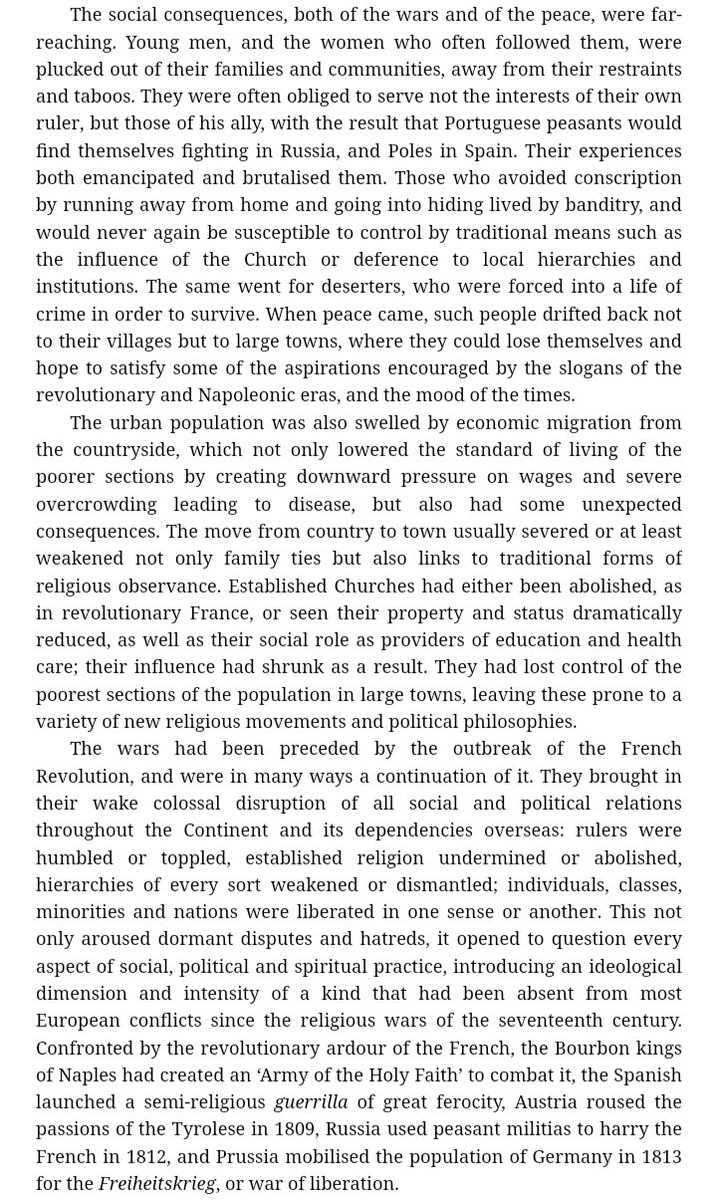
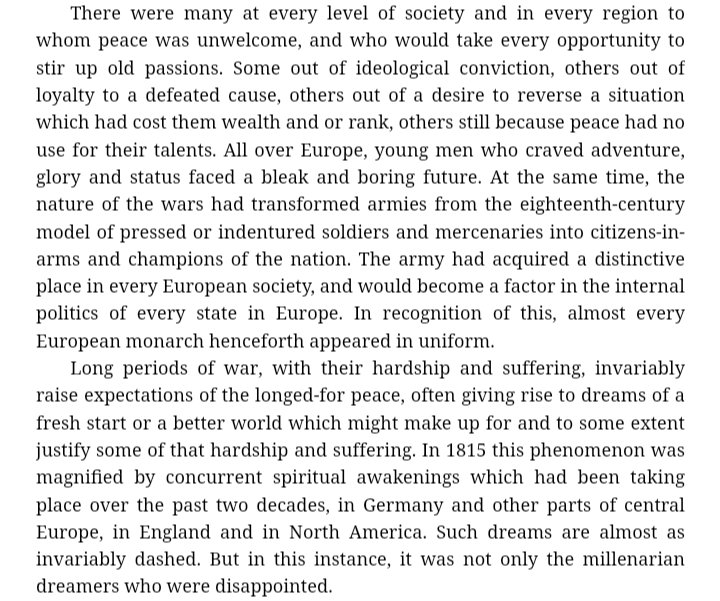
The Congress of Vienna couldn't go all the way back to the ancien régime, and instead enshrined a sort of utilitarianism, justifying European governments on the grounds of the benefits they gave their subjects. This left many, on the left and the right, deeply unsatisfied. 

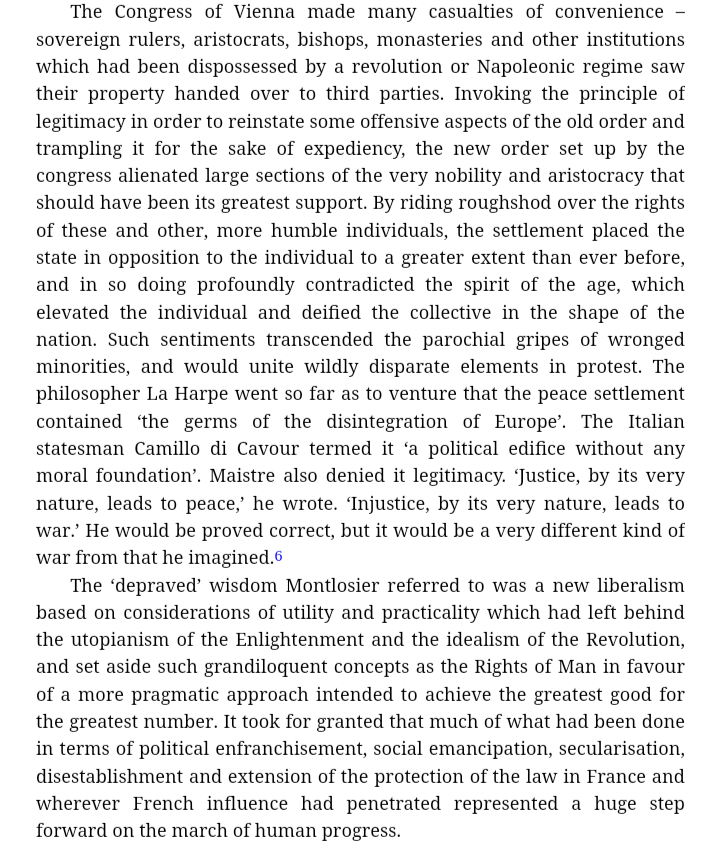
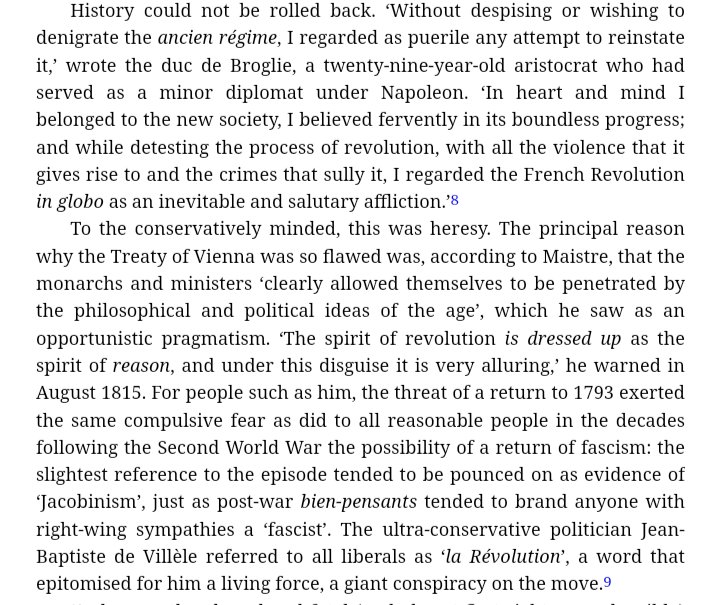
Napoleon returned from exile right in the middle of the Congress of Vienna, which promptly declared him and his supporters outside the law. Paradoxically, his defeat at Waterloo turned him into a tragic but heroic figure, giving hope to liberal revolutionaries across Europe. 


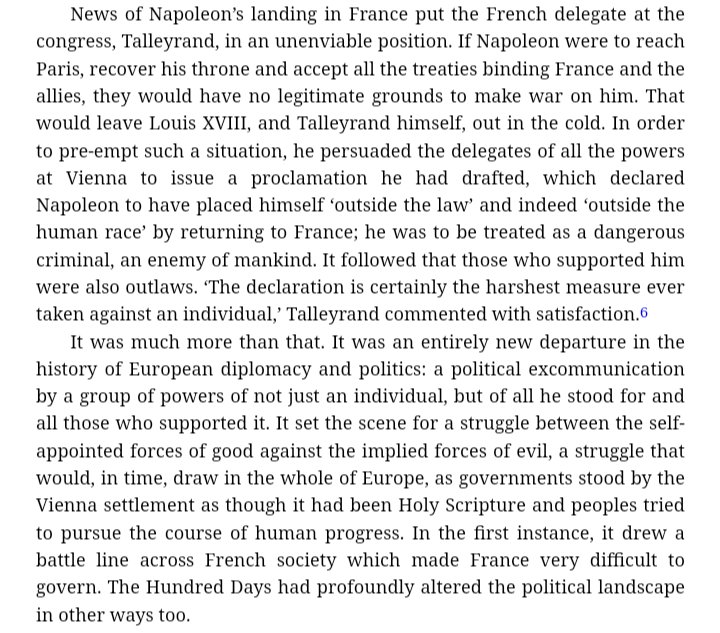
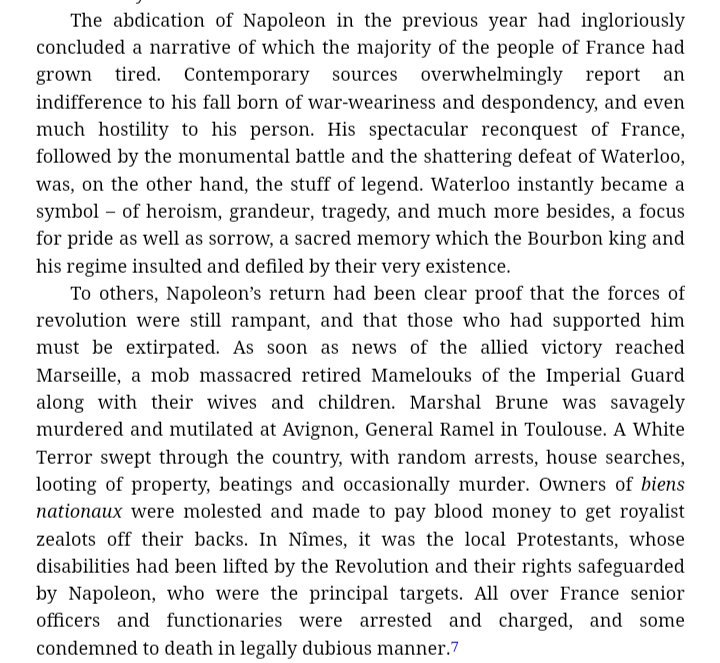
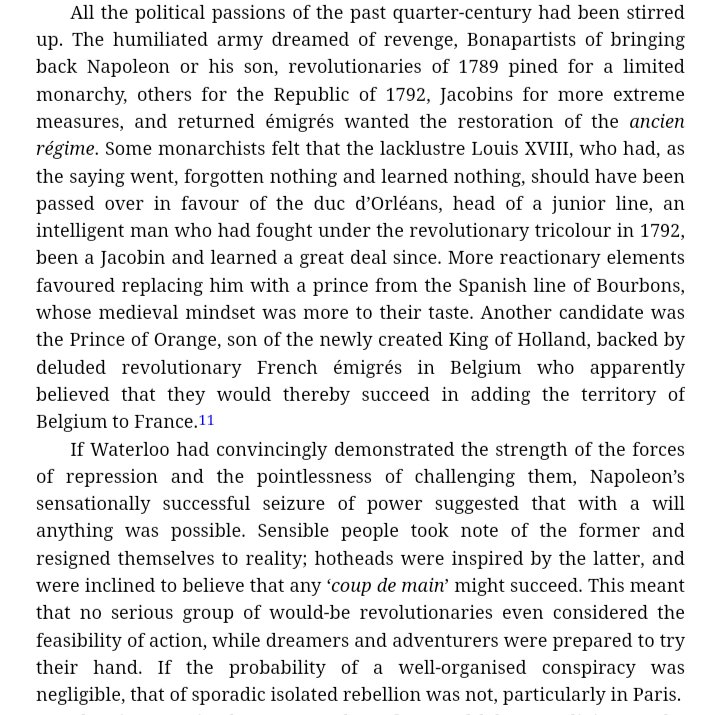
The police of the restored Bourbon monarchy engaged in widespread entrapment, ranging from teaching workers anti-Bourbon songs to manipulating grain prices and printing fake pamphlets denouncing the king. One agent was prosecuted for this, but generally it was tolerated. 
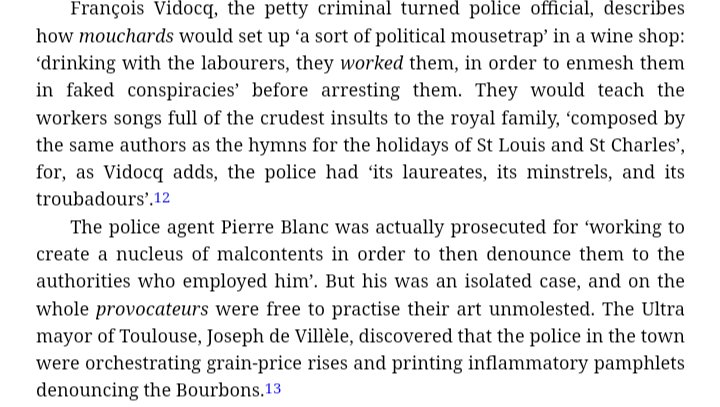
"Most if not all of the 'conspiracies' the police uncovered during this period were of its own creation." Agents got Napoleonic veterans drunk, encouraged them to denounce the king, and then arrested them; one general masterminded an insurrection, crushed it, and got a barony. 



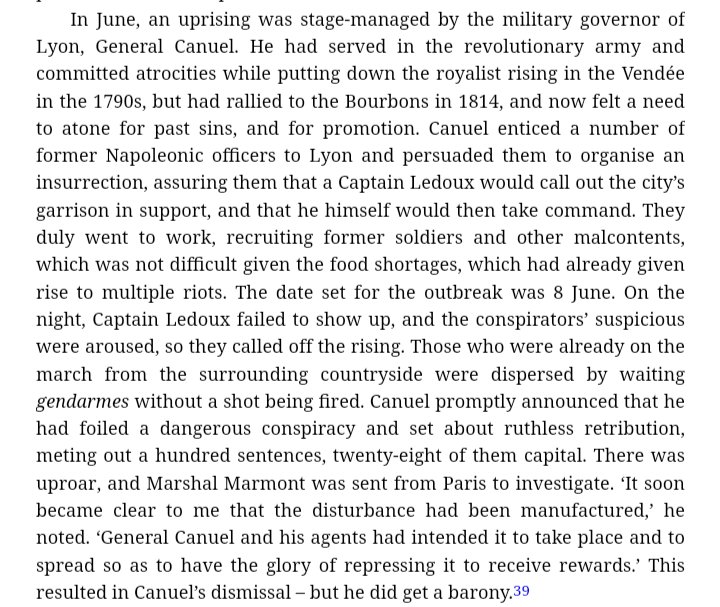
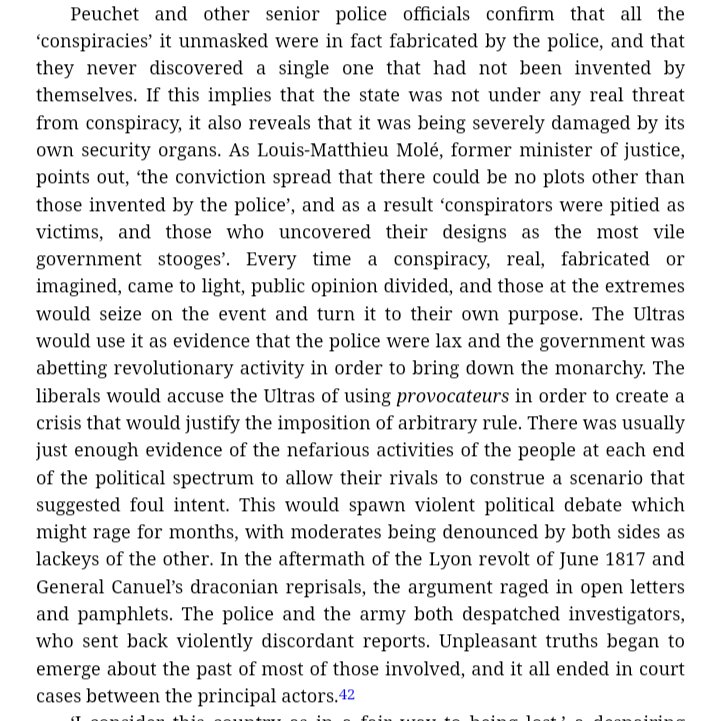
Austrian Chancellor Klemens von Metternich, architect of the post-Napoleonic order, was not religious himself but believed in the throne and altar as the pillers of European peace. He turned the Austrian chancellery into something resembling an international secret police. 

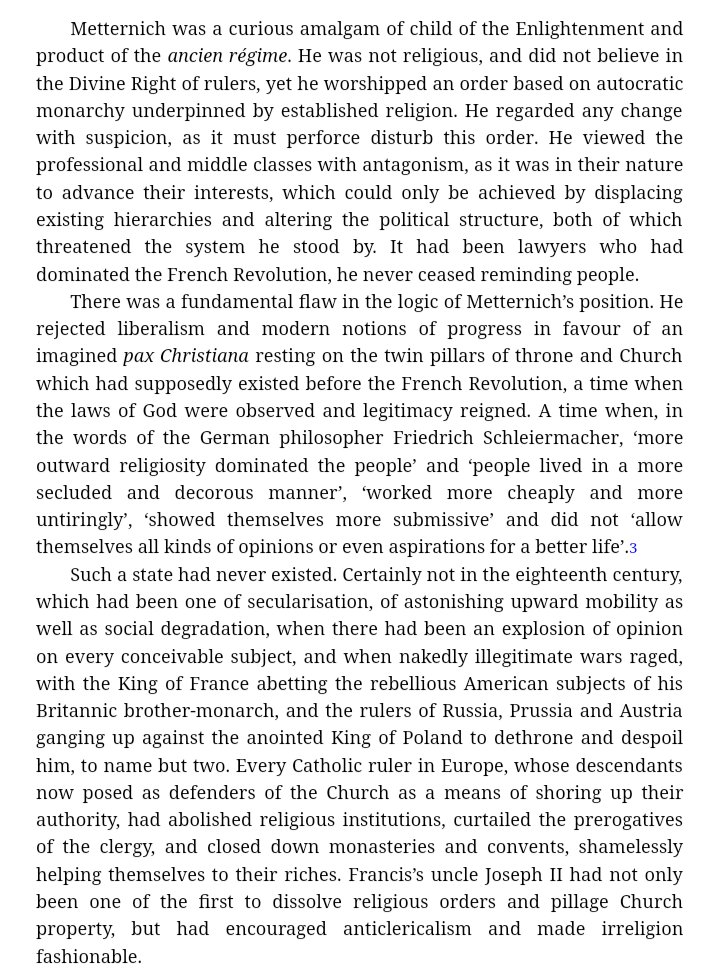
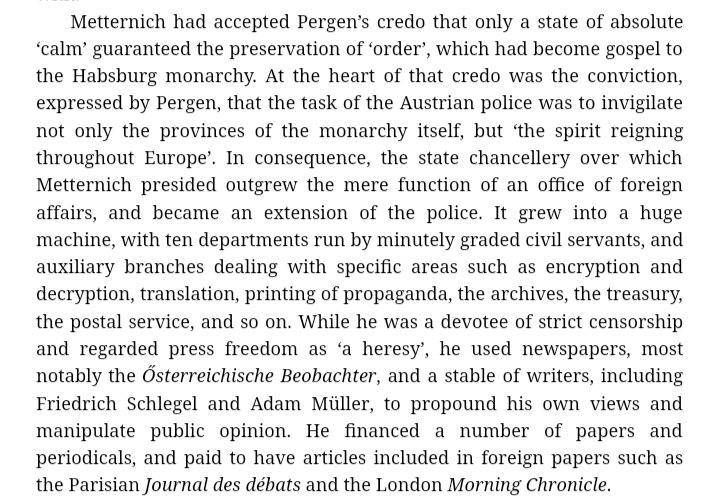
Metternich and Tsar Alexander, although united in opposition to Napoleon, were divided on almost everything else. Metternich hated Alexander's support for constitutions, plans for a military intervention in Latin America, and flirtations with religious mysticism. 

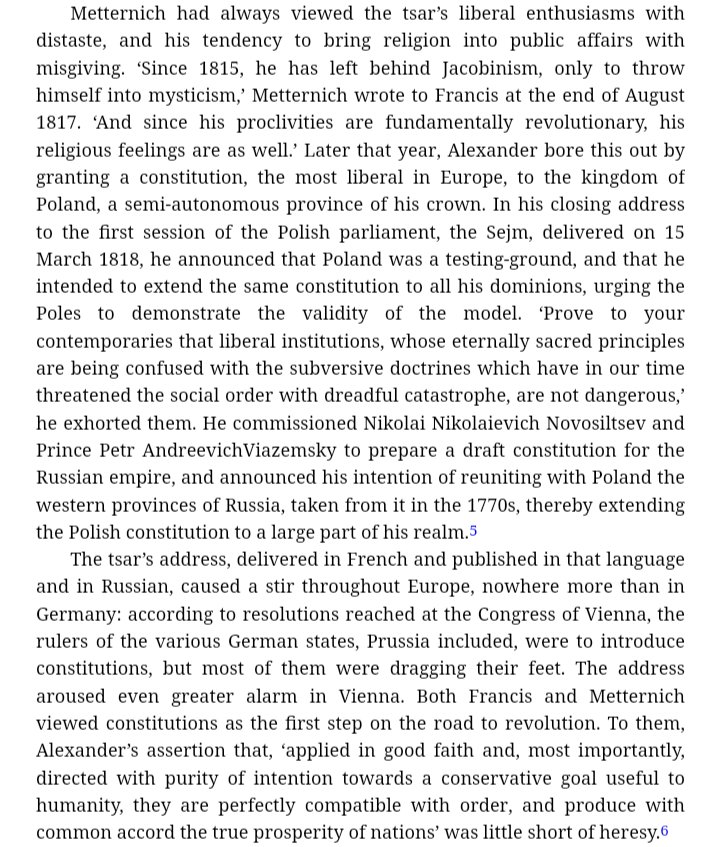

After its defeat and subjugation by Napoleon, Prussia became a hotbed of espionage. When the young Prussian civil servant in charge of the secret police was forced out by the French, the allies helped him organize and run a pan-German underground network. 

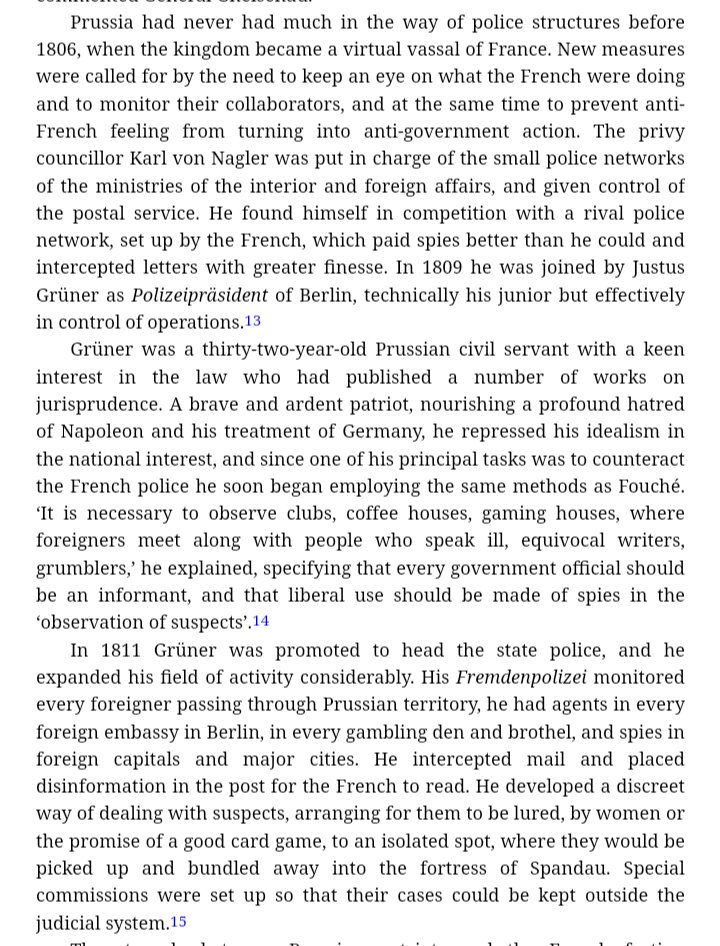
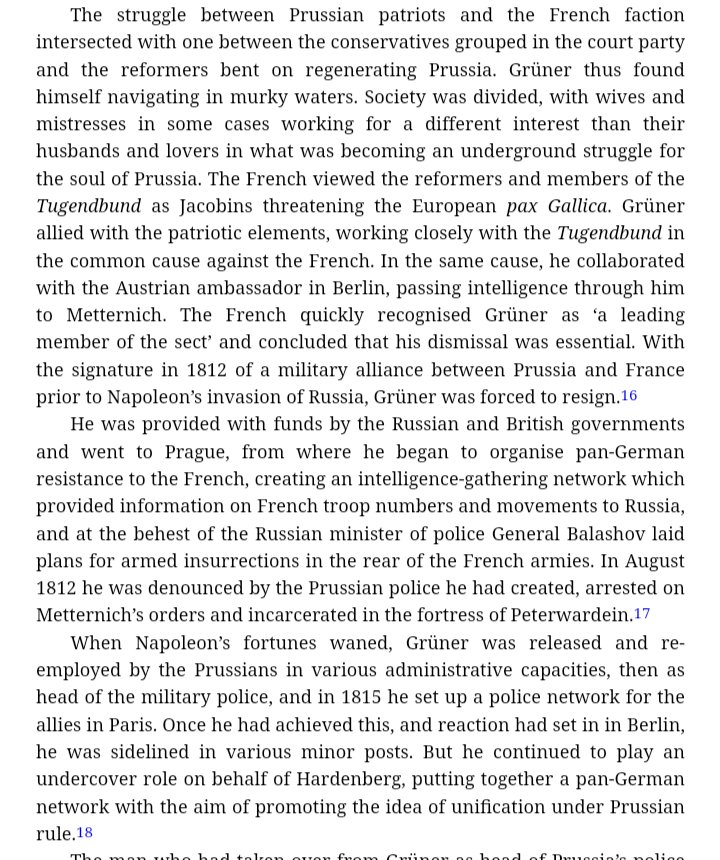
A German student and hardcore nationalist stabbed a conservative playwright to death and then attempted to kill himself. It seemed to confirm all of Metternich's conspiracy theories and justified a crackdown on universities. 

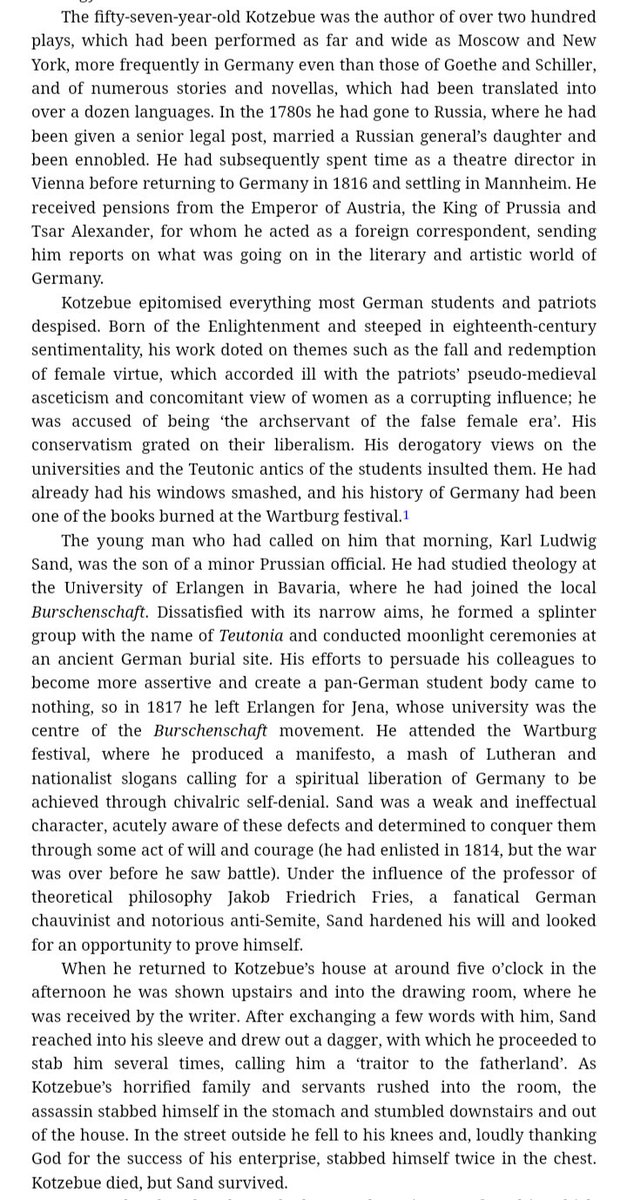
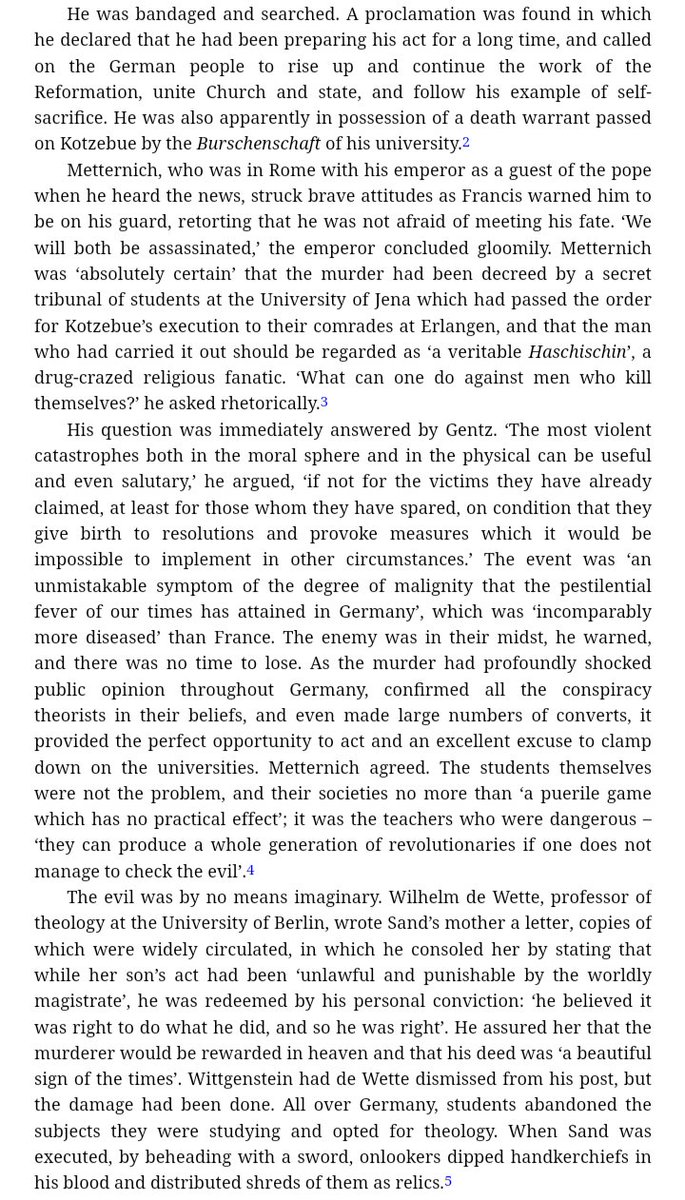
When the nephew of Louis XVIII was assassinated in Paris by a saddler, news spread outside of Paris that he was actually a decorated military officer, that rebels had already taken Paris, or that the plot was masterminded by Napoleon himself. 

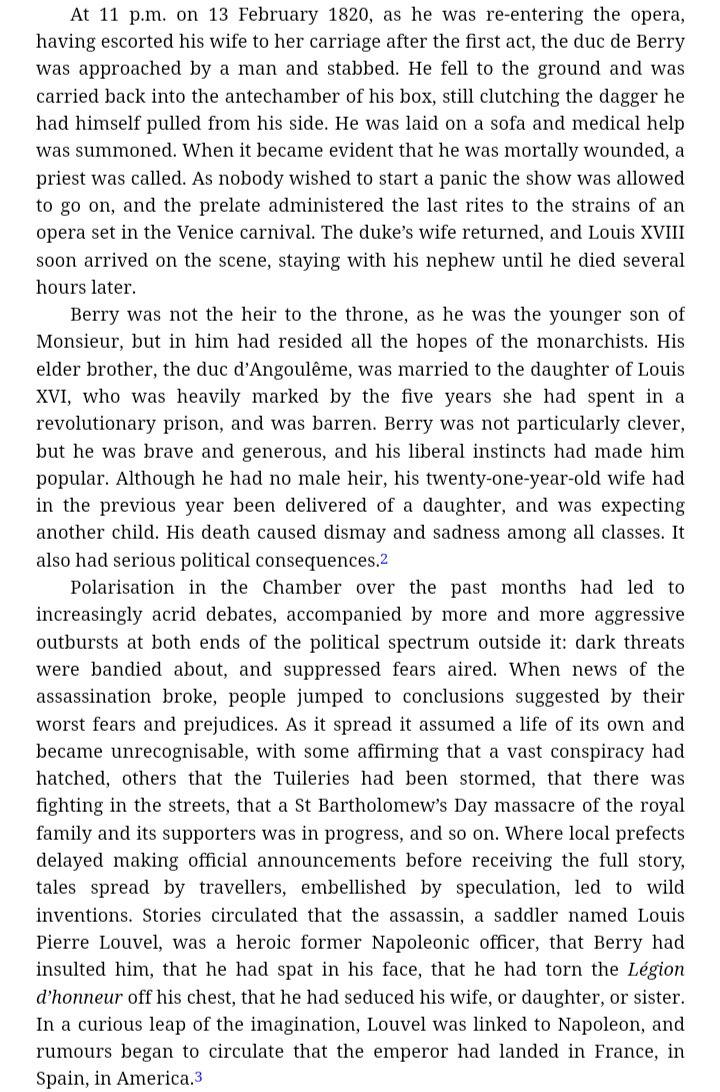
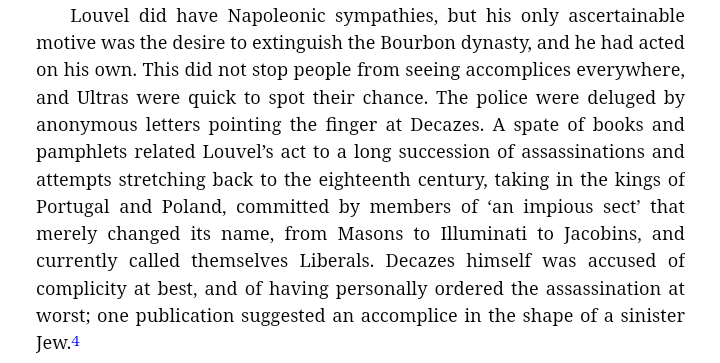
When the Greek Revolution kicked off, Tsar Alexander became convinced it was a plot to stage a liberal revolution in an Orthodox country, which he would be naturally support, splitting him from his conservative allies. 
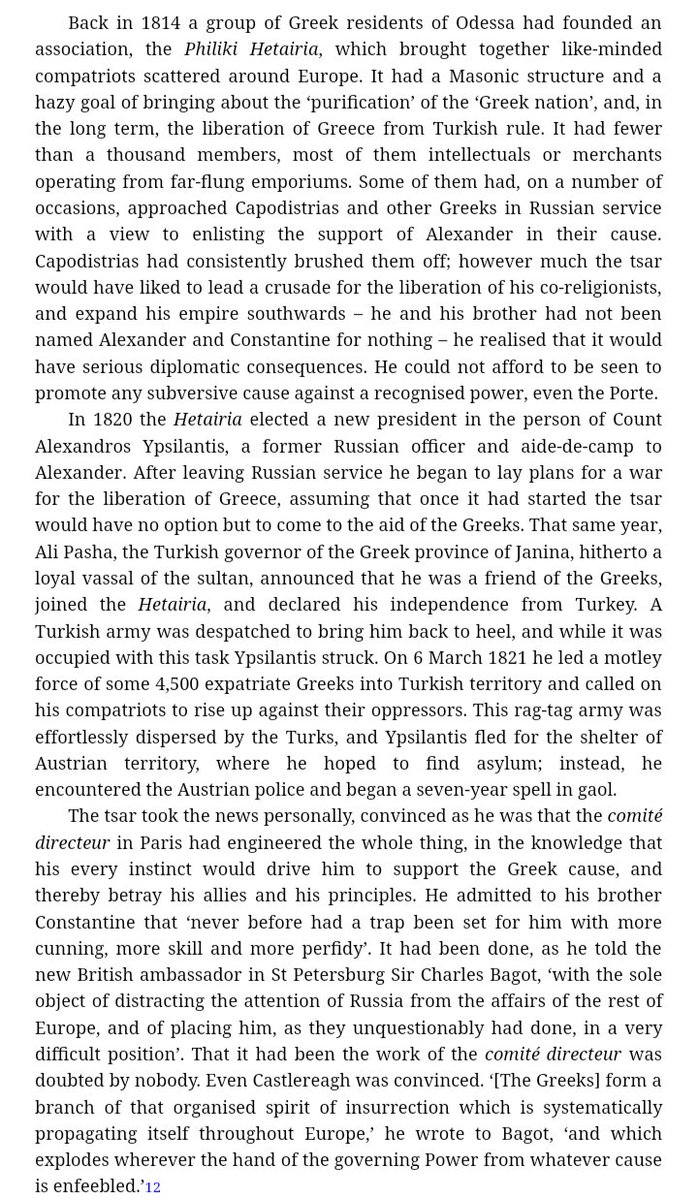
A pair of French police agents from different agencies each attempted to catch potential revolutionaries by posing as disgruntled Napoleonic veterans. They ended up trying to entrap each other. 

When the United States issued the Monroe Doctrine -- that it would resist any European efforts to intervene in the Western Hemisphere -- Metternich took it as evidence that it too was controlled by the great revolutionary conspiracy centered in Paris. 
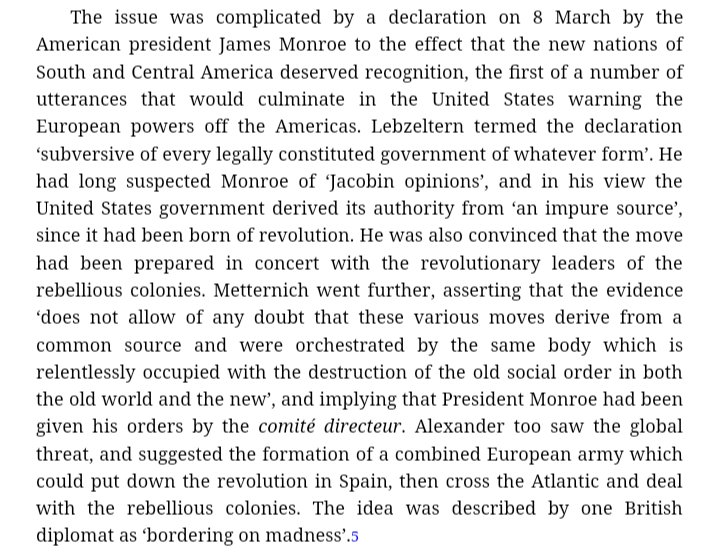
The Austrian secret police made few efforts to conceal themselves. When an American merchant discussed politics over dinner, he was brought in for questioning the next day. Knowing his servants were informants, he dismissed them, only to be hauled in for that as well. 
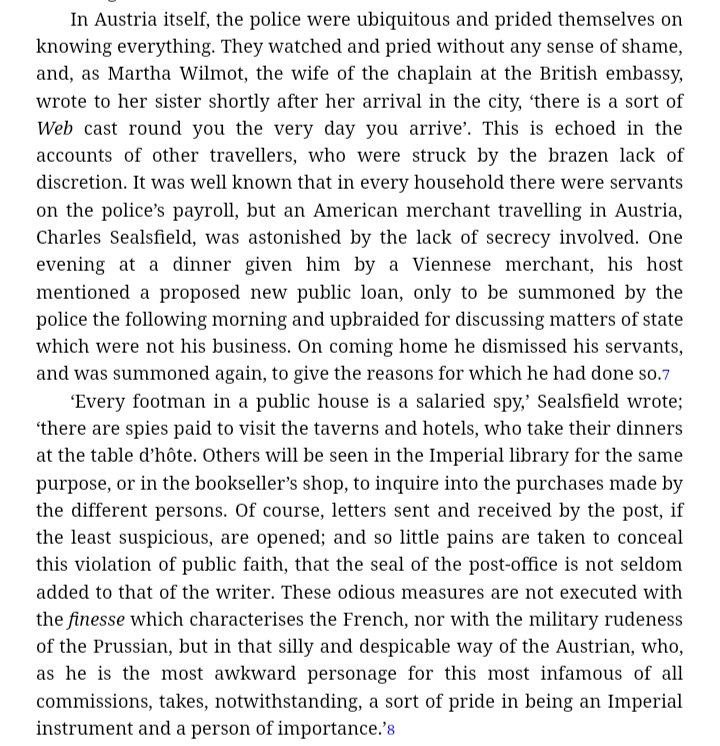
The French secret police and their vast network of informants turned out to be unable to predict the July Revolution of 1830, which ended with the overthrow of Charles X in favor of Louis-Philipe, duc d'Orleans. Even the establishment liberal opposition was caught unprepared. 

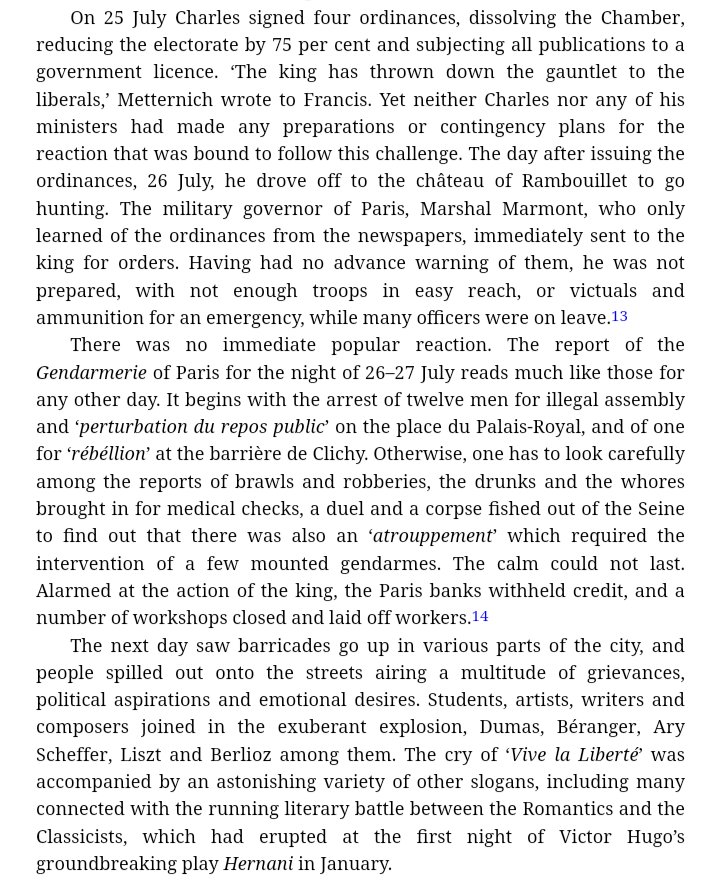
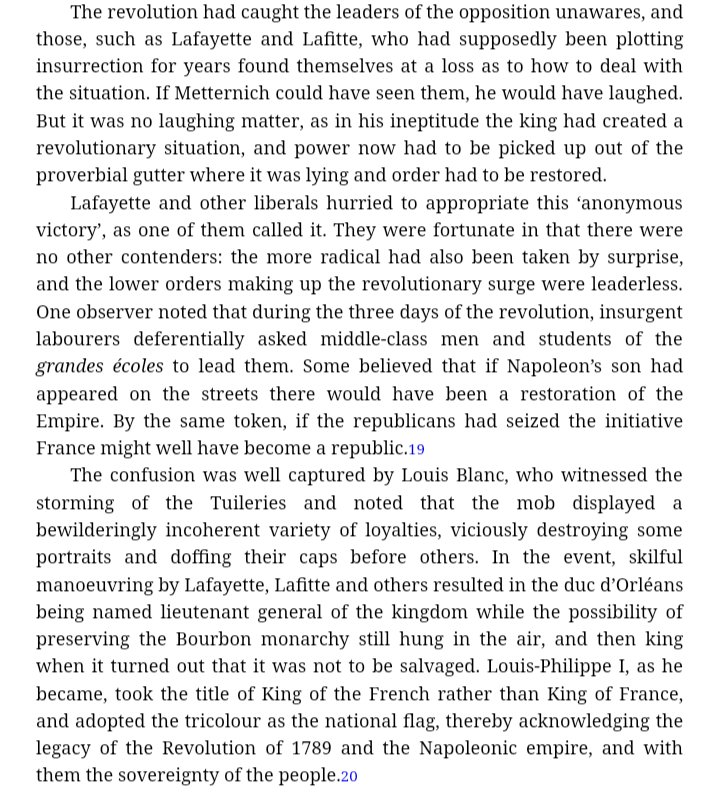
Britain relied on local officials and the military to enforce law and order long after most of the continent established professional police. The first British police were created in Ireland. When the London police were established they were seen as a tool of European despotism. 

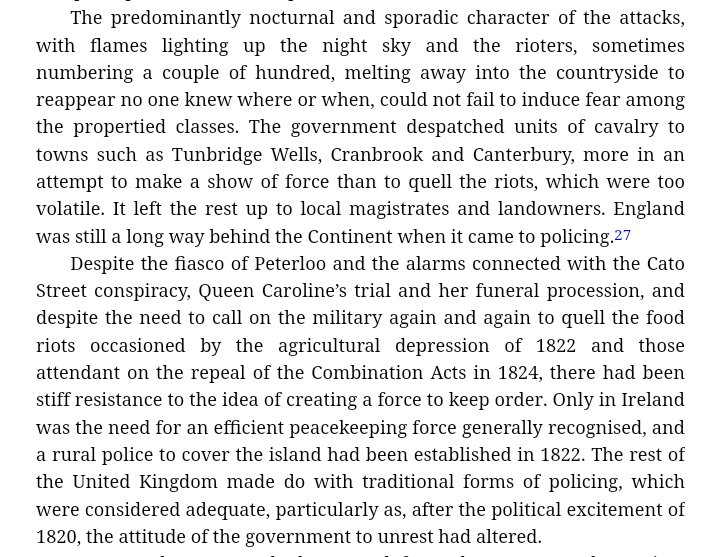
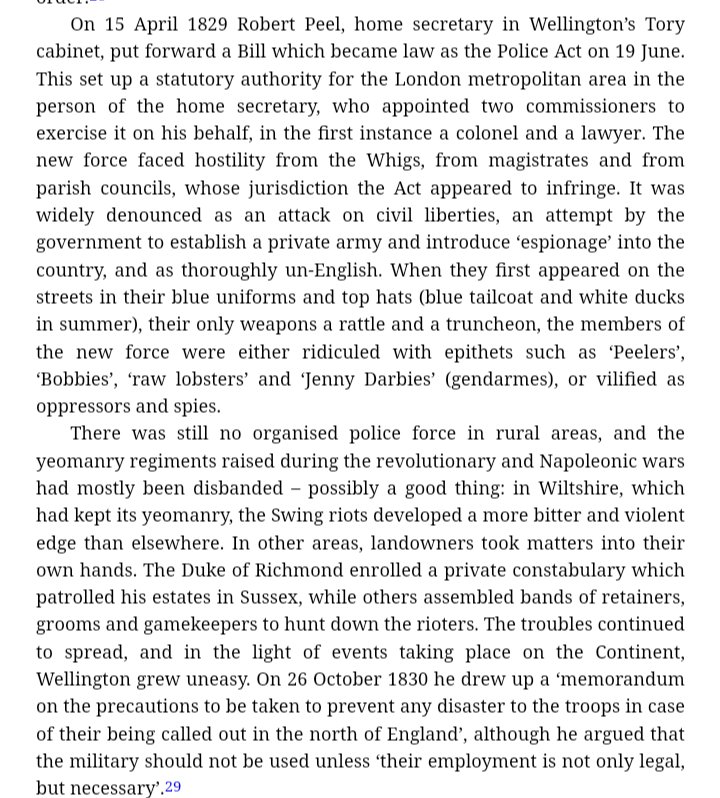
A French secret policeman identified seven types of revolutionaries: rebellious students, overproduced elites, romantics who "view ordinary life with horror," working class rioters, idiots taken in by propoganda, opportunistic strivers, and foreign refugees. 
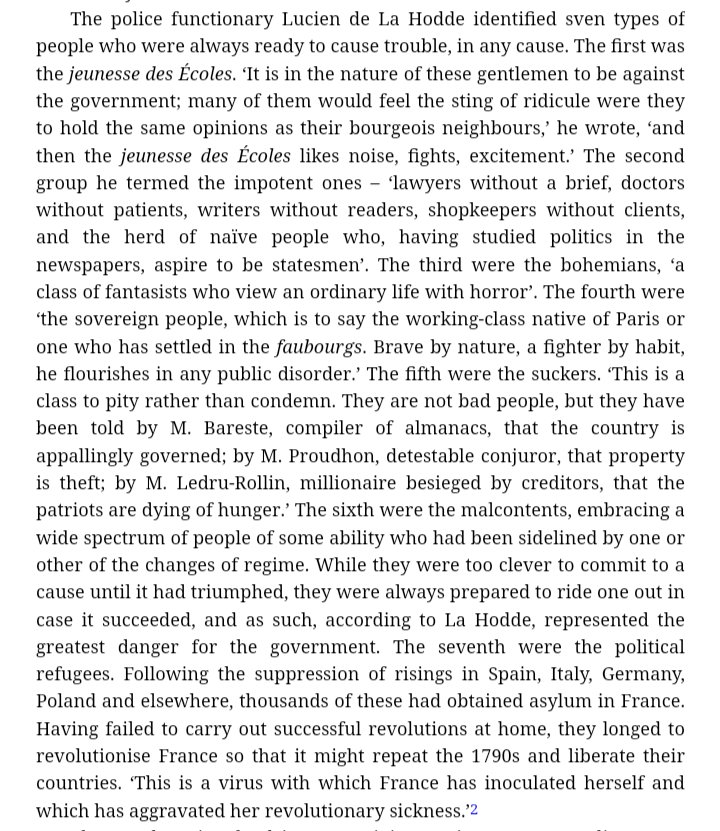
Tsar Nicholas attempted to stamp out subversion by preventing Russians especially students, from going to France. This had the unfortunate side effect of ensuring that Russian intellectuals read Germans like Marx and Hegel instead. 
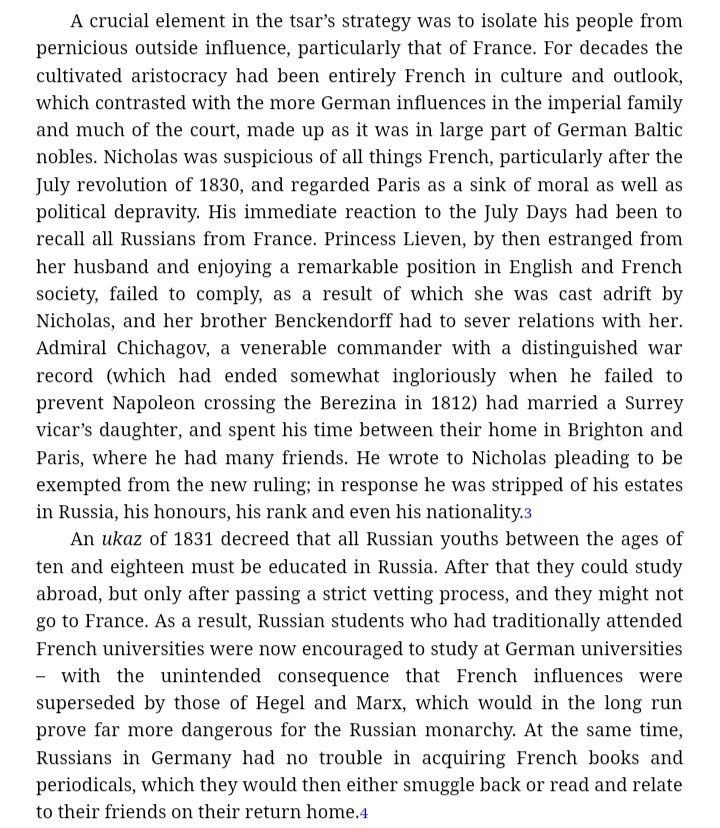
The revolutions of 1848 seemed to be the great eruption that Metternich had predicted, but once they succeeded in squeezing reforms out of the kings of Europe their more moderate elements turned on the most radical, who were promptly crushed. 

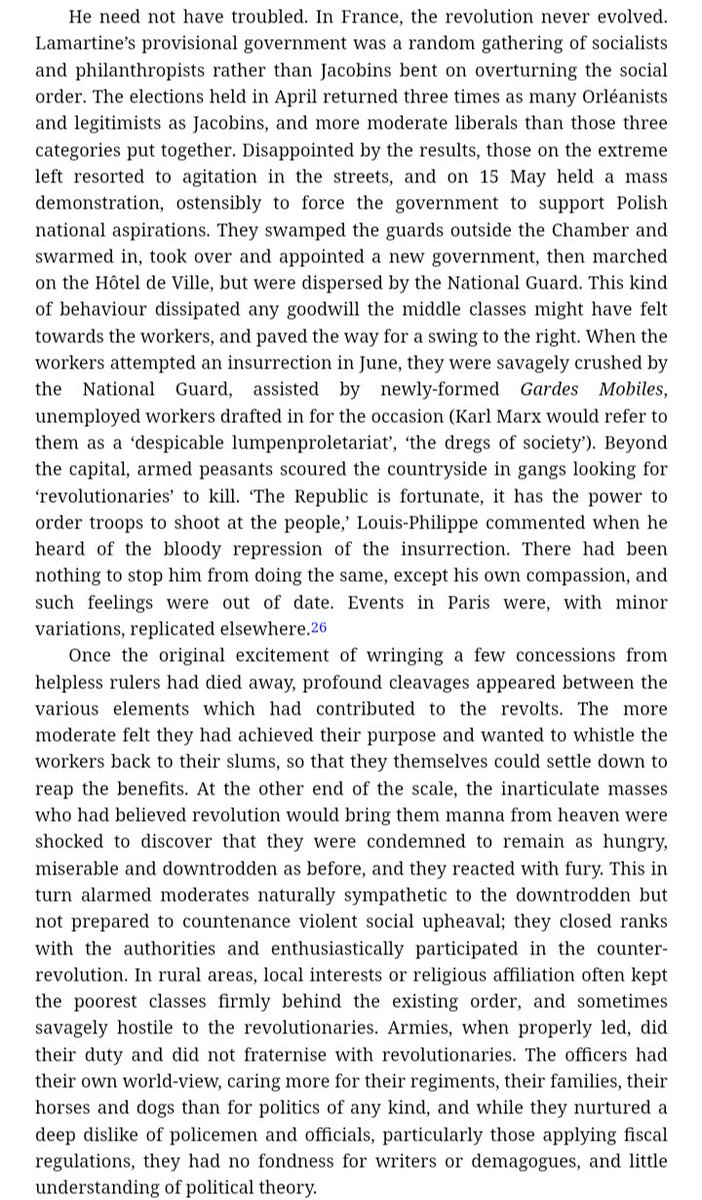
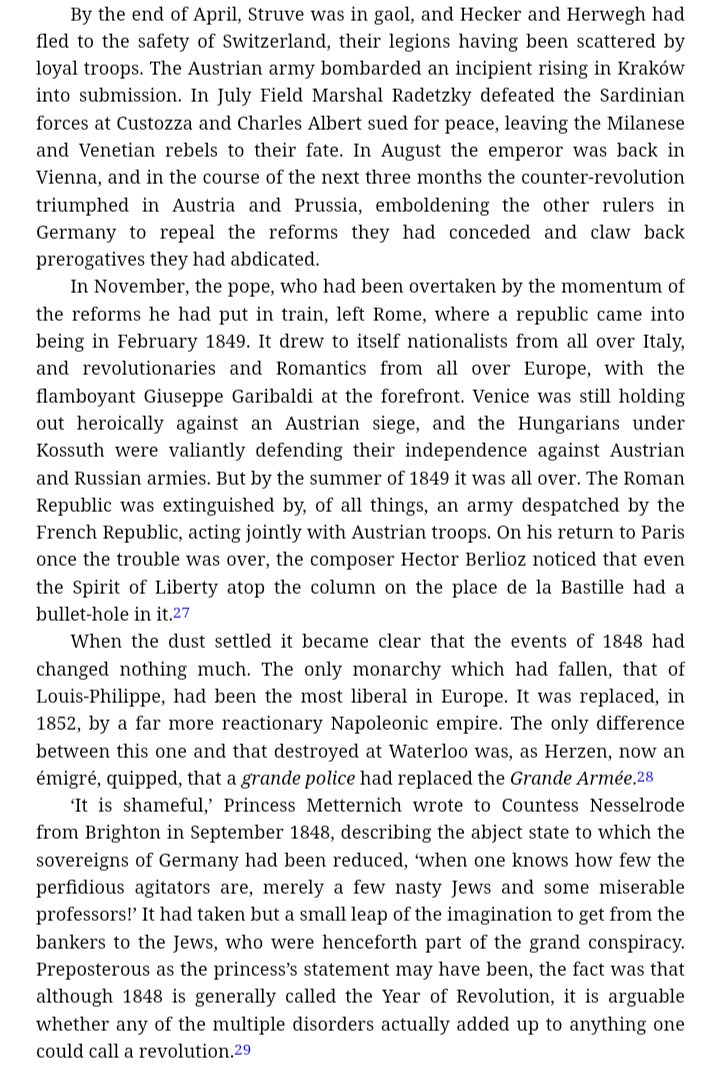
Overall, a good book. Although Zamoyski is obviously on a side, his book is full of detail on secret police, censorship, and political conspiracy theories that are often relegated to a few sentences in traditional diplomatic and political histories of this period.
• • •
Missing some Tweet in this thread? You can try to
force a refresh

